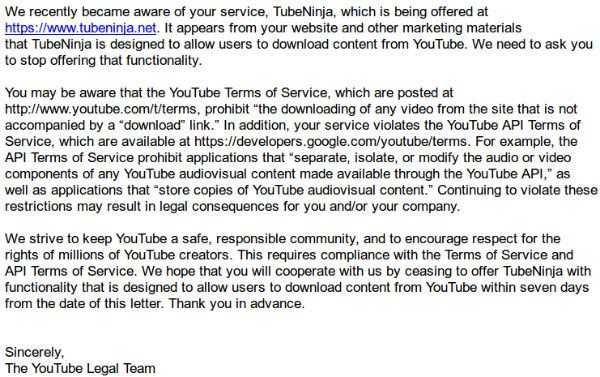Google's lawyers have sent out to TubeNinja, a website that allows you to download content on YouTube in the form of various video or audio files.
Almost most users know this kind of web sites and most have used them to download content from YouTube, even if they are not available in their countries.
The TubeNinja it is just another website in a sea of similar ones services που επιτρέπουν στους χρήστες να κάνουν copy-paste μια διεύθυνση URL και, στη συνέχεια, να αποθηκεύουν το αρχείο της αρεσκείας τους στον computer them, which legally constitutes the commission of material copyright theft if the video is not under a special license.
Since the vast majority of these files are music videos, you can imagine the pressure Google is under. So it's no surprise that during the past week, the TubeNinja team received a letter from YouTube's legal team, asking them to cease all activities related to downloading files.
The letter was very specific and indicated that the site violated the terms of service provided by Youtube and its APIs. And he emphasized that non-compliance would undoubtedly lead to legal action.
TubeNinja's answer to all this is not using the YouTube APIs and that users are fully responsible for the way they use the service. He also says that if Google really wanted to ban video downloading then it would have to start first with the Chrome Web Store, where multiple Chrome extensions provide the same service just below Google's nose.
Google's anti-download service from Youtube has a history with the company attempting a similar 2012 bay against Youtube-mp3.com, but it has failed.







